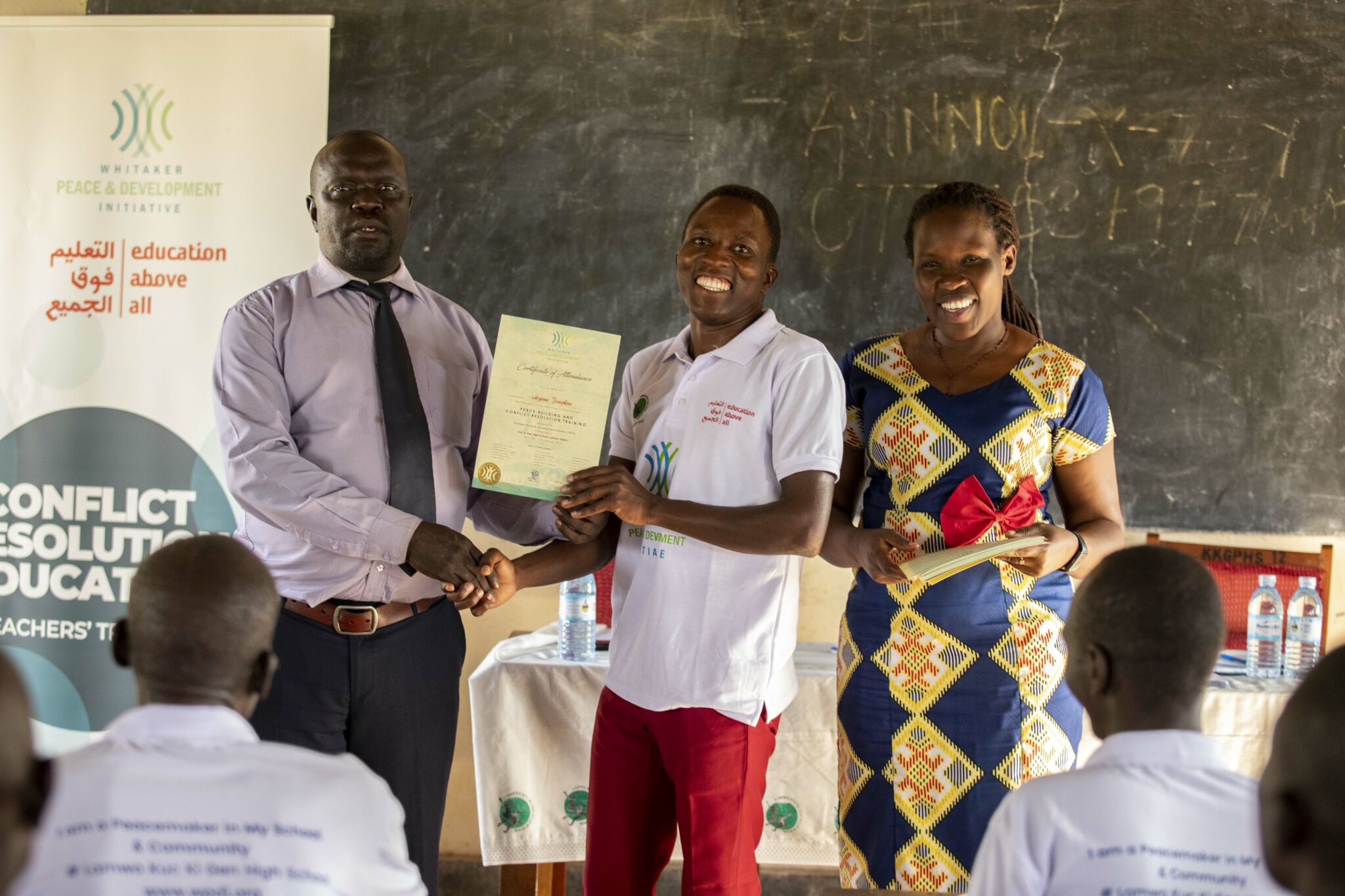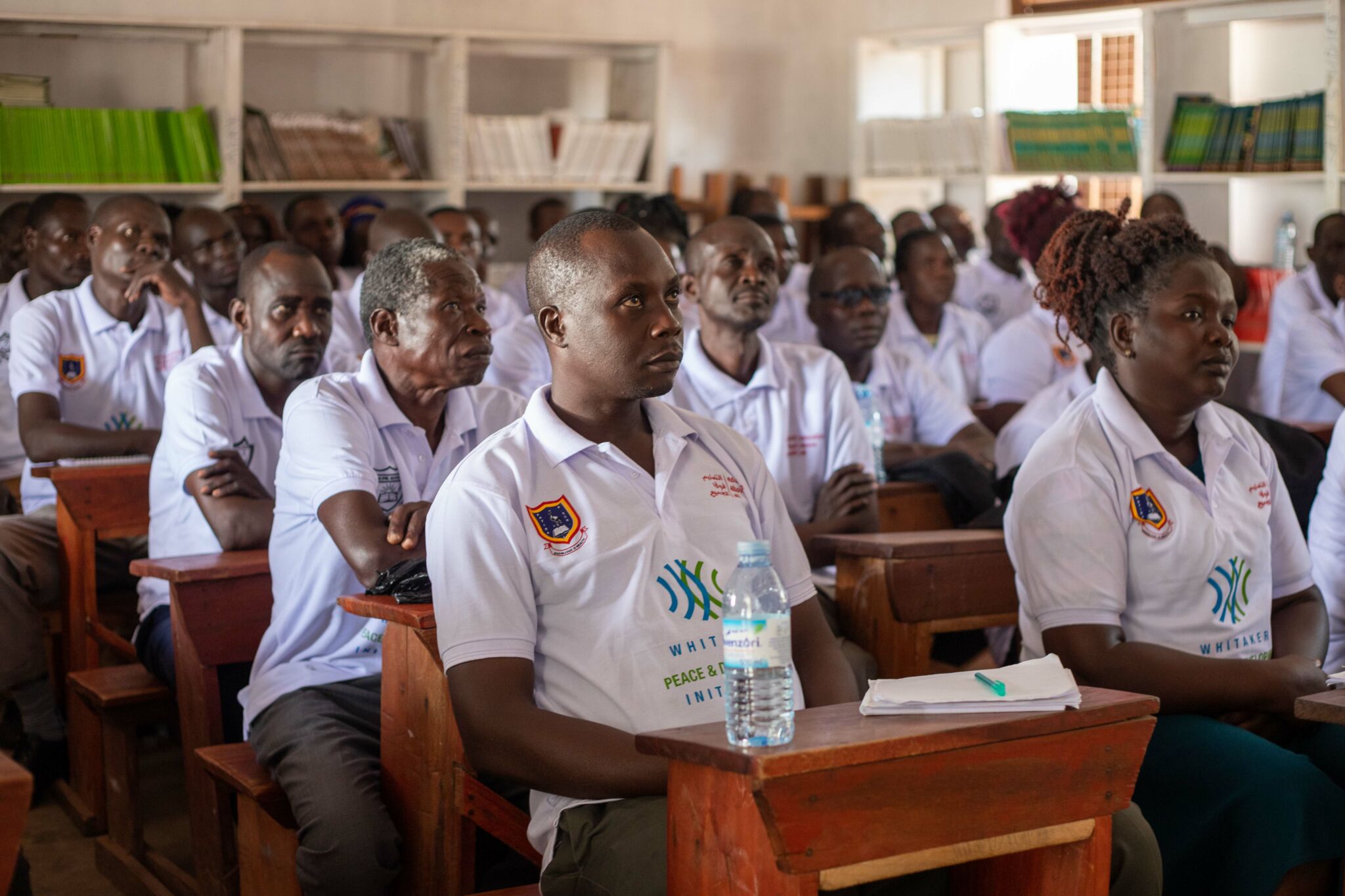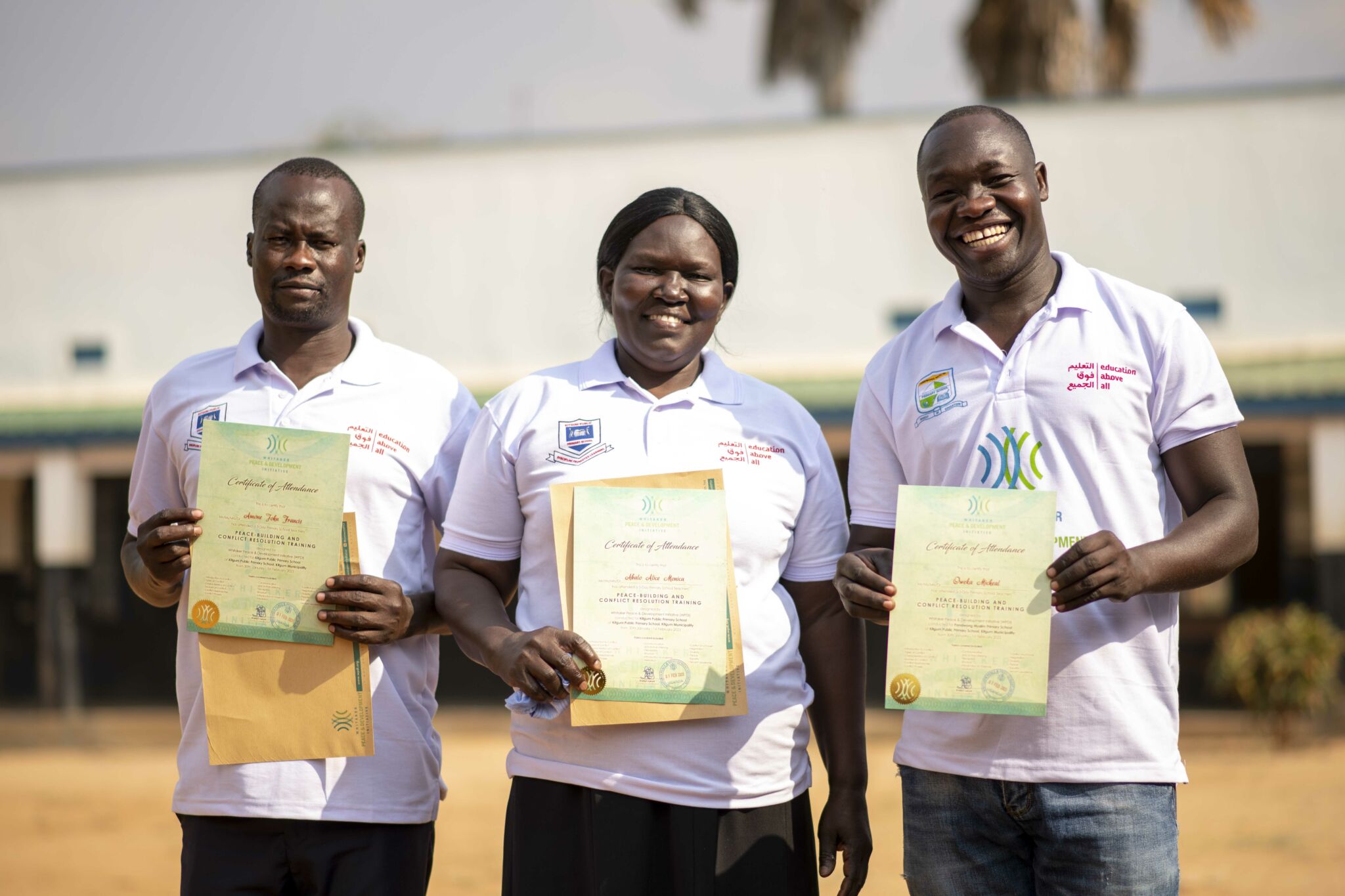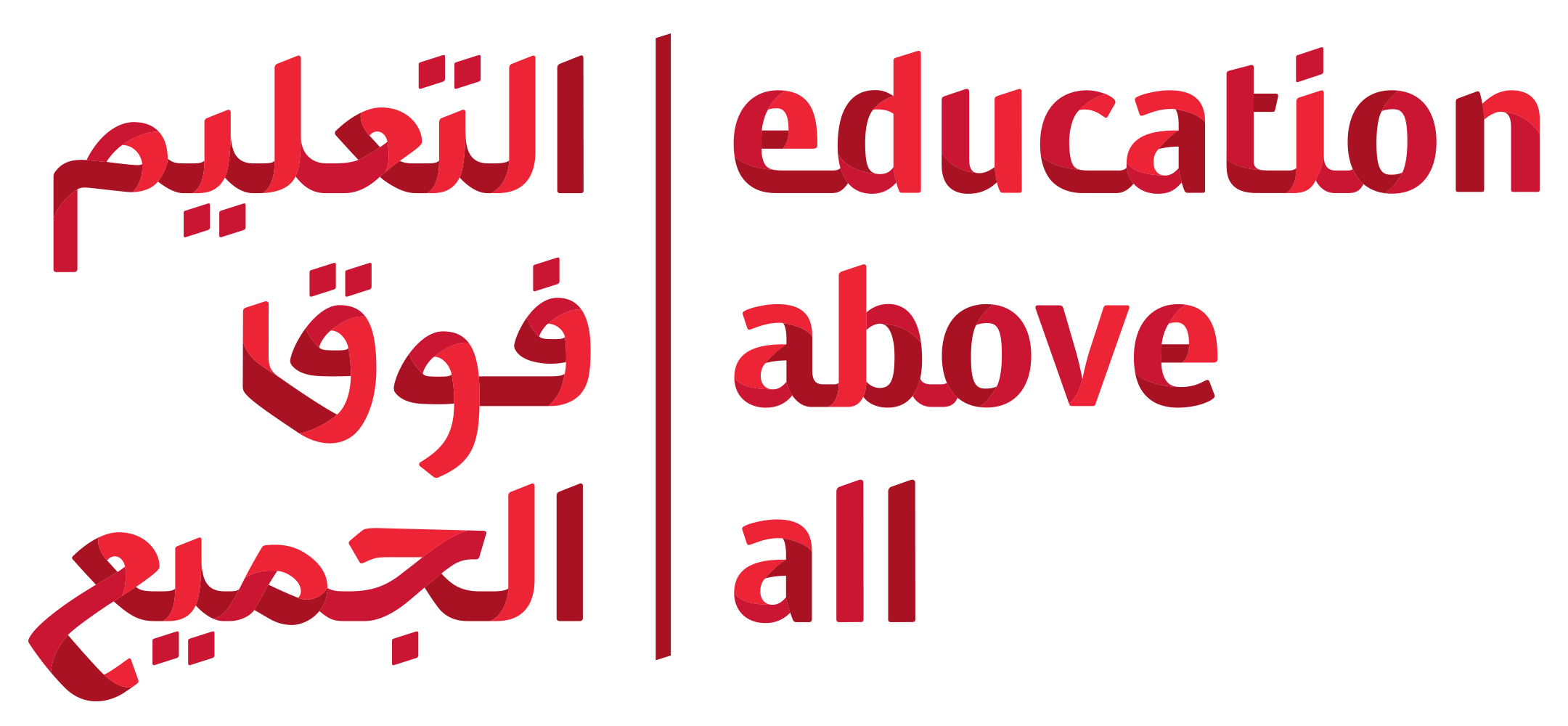April 11, 2023 – Any member of a community has the potential to become an active peacemaker and agent of positive transformation. This is the principle behind the comprehensive Conflict Resolution Education (CRE) program that constitutes one of the cornerstones of our mandate. This potential, however, can only be unleashed through dedicated training, guidance and mentoring. No one is born with the capacity to successfully mediate conflict or find sustainable solutions to social instability in countries lacking in robust social infrastructures or security apparatus. Our CRE curriculum has therefore been designed to be adapted and taught to a wide variety of people in a diverse array of contexts and countries.

In this respect, few places are more critical for teaching peace than schools, which allow us to reach out to children and adolescents at ages when fundamental values and skill sets are acquired sometimes for life. To this effect, we have, over the years, developed a CRE program specifically designed to disseminate a culture of peace in and through schools. This is a program for pupils and students – but not only. Our ultimate objective is to make sure that every member of the communities where we operate is able to convey values of non-violence and tolerance to other members of their communities. Teachers, therefore, play a vital role in our CRE program.
Teachers have crucial roles to play in the schools where they work. Their position of authority means that they are ideally placed to transmit values and attitudes of peace, tolerance, non-violence and dialogue as the most effective means to resolve conflict sustainably and consensually. Teachers have the most direct, regular contact with learners and their potential for sensitizing young people on values and attitudes of peace and nonviolence is immense. This is why our program for schools systematically comes attached with Conflict Resolution training modules specifically for teachers, helping build their capacity to become agents of transformative peacebuilding within their schools, many of which are located in communities badly affected by social instability, economic hardship and marginalization.

WPDI ran one such program for 317 school teachers in the Acholi Sub-Region of Uganda in the first quarter of 2023. The teachers, representing 18 schools across the region, were able to strengthen their capacity to deal with internal conflicts, transmit the specific skills needed for peacebuilding to their students, learn how to understand the complexities of social conflicts, and be able to promote sustainable peace in their schools and their communities.
One participant, Eric. P. Eumu, teacher at Keyo Senior Secondary School, said that “professionally, this training has significantly increased [his] chances of getting a job, and [he is] more confident with this practical knowledge and skills in transformative peacebuilding that [he] will employ to create an environment conducive to peace in school. This will boost academic excellence and help [his] community to promote unity and peace.”

Being witness to the nefarious effects of long-term conflict in their communities, many teachers are extremely committed to peacebuilding and the sustainable transformation of the schools where they work. “This is one of the best formal training programs l have attended in Conflict Resolution Education and peacebuilding. It has had a huge impact on my professional knowledge and teaching career. I want peace, I need peace, l love peace in its fullness in my life, my school and my community,” said Okot Bernard, teacher at Anaka Integrated High School..
Building on our years of experience training local actors to become agents of peace, WPDI plans to expand its mandate throughout 2023 in collaboration with our local and international partners. Tapping into the intrinsic power of education professionals to influence the younger generations in a positive way is part and parcel of our peacebuilding strategy, affording the communities where we operate unique resources for building lasting peace in the years and decades to come.
In partnership with
